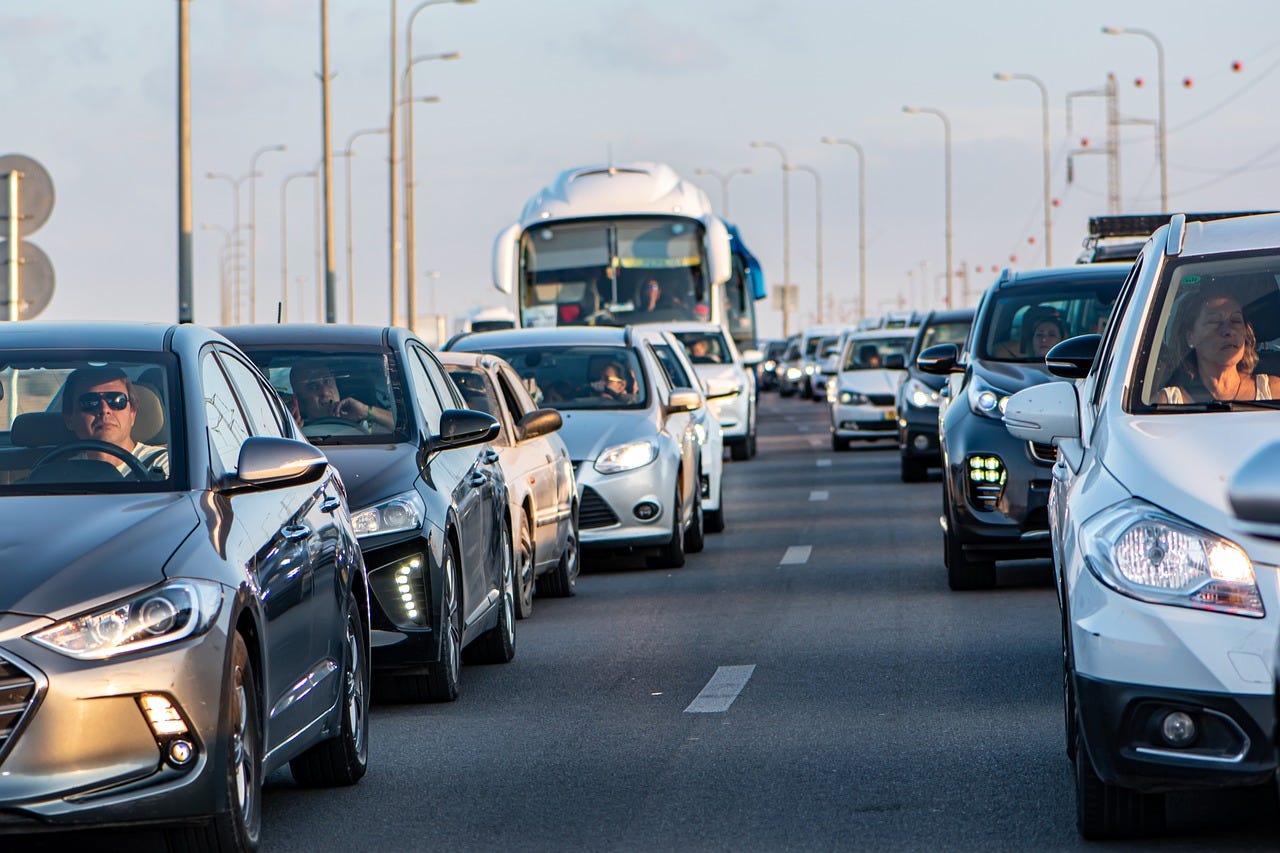Highway hostages
After years of being completely dependent on personal cars to get anywhere, Americans display characteristics of Stockholm syndrome. We're all Patty Hearst now.
Stockholm syndrome, psychological response wherein a captive begins to identify closely with his or her captors, as well as with their agenda and demands.
The survival instinct is at the heart of the Stockholm syndrome. Victims live in enforced dependence and interpret rare or small acts of kindness in the midst of horrible conditions as good treatment. They often become hypervigilant to the needs and demands of their captors, making psychological links between the captors’ happiness and their own.
Indeed, the syndrome is marked not only by a positive bond between captive and captor but also by a negative attitude on behalf of the captive toward authorities who threaten the captor-captive relationship. The negative attitude is especially powerful when the hostage is of no use to the captors except as leverage against a third party, as has often been the case with political hostages.
Newspaper heiress Patricia “Patty” Hearst was kidnapped at gunpoint 50 years ago Sunday by the Symbionese Liberation Army, later joining her captors in a 1974 San Francisco bank robbery that earned her a prison sentence…
Hearst’s allegiance to the Symbionese Liberation Army raised questions about Stockholm syndrome, a common term deployed to describe the bond that victims of kidnappings or hostage situations sometimes develop with their captors.
—Stefanie Dazio, Associated Press, 2/4/24
You see a type of Stockholm syndrome every day in the way people in our car-dependent society come to view their relationship with automobiles and car-oriented infrastructure. The captive adapts to their conditions in ways that reinforce their dependence.
Car dependency enforces a kind of psychological captivity where the car is seen as essential for daily survival. Just as captives begin to see their captors as protectors rather than oppressors, people in car-centric environments often view their vehicles as indispensable allies. The car, much like a captor, dictates the terms of daily life, influencing where people live, how they work, and even how they socialize.
The infrastructure that supports car use—bloated arterials, acres of parking, and sprawling suburban shopping centers—reinforces this dependency, leaving little room for alternatives. The captive becomes conditioned to see their situation not just as normal, but as necessary for their well-being. “We’ve got to kill that road diet project.”
Acts of kindness in a captor-captive relationship, such as a small concession or a brief moment of compassion, are often magnified in the mind of the captive. Small improvements in car-related convenience are celebrated as major victories. “I haven’t crashed on this road after they widened it, which is proof it’s safe.”
Captives can develop a negative attitude toward those who might intervene or offer liberation, viewing them as a threat to the fragile balance they have established with their captors. Public transit, protected bike lanes, or pedestrian upgrades are met with skepticism or outright hostility.
Here’s a game to play while you’re sitting at a red light. (I’m kidding. Don’t do that. It’s for those snoozefest Zoom meetings at work.) Come up with a car dependency example for each of these:
Captive's Paradox: A psychological phenomenon where a captive forms emotional bonds with their captor, despite the danger and harm involved.
Survival Bonding: The process by which a victim develops positive feelings toward their captor as a survival strategy.
Hostage Identification: When a hostage begins to sympathize with their captor's motives and actions, often rejecting outside help.
Captivity Connection: A state where a captive feels loyalty and affection for their captor, viewing them as a protector rather than a threat.
Protective Attachment: The emotional attachment a victim develops towards their captor, believing their well-being is tied to the captor's happiness.
Dependency Syndrome: A psychological condition where a captive perceives their captor's small acts of kindness as signs of benevolence, fostering dependence.
Trauma Bond: A strong emotional bond formed between a victim and their abuser during prolonged exposure to trauma or captivity.
Captive's Alliance: A psychological response where a victim aligns themselves with their captor's agenda and rejects those who threaten this bond.
Fear-Based Loyalty: When a captive develops loyalty to their captor, believing it ensures their survival, despite the abuse or threat involved.
Empathic Misalignment: The misdirected empathy a victim feels towards their captor, often leading to the defense of their captor’s actions and motives.
For example, the trauma bond is demonstrated by the way Americans endure miserable commutes but insist there's no other way to travel.
There’s a possibility you’ve gotten to this point waiting for a straight-faced and professional conclusion. I don’t have one. But I am 100% serious when I say it’s beneficial to spend some time thinking about the absurd extremes our modern culture goes to defend and even fight on behalf of something that does us so much harm.





Oh great, now I’m a hostage, and I have no possible way of escaping in my lifetime…;)
There’s a bit of laziness involved in becoming a “hostage” to traffic jams as well. Upon seeing huge backups in the opposite direction on our way “out”, I insisted that our return be on “back roads” (actually just state highways) rather than the interstate, even though it was hours later. Zero traffic and far less boring driving. Google maps also has a “traffic” display that can show where jams are.